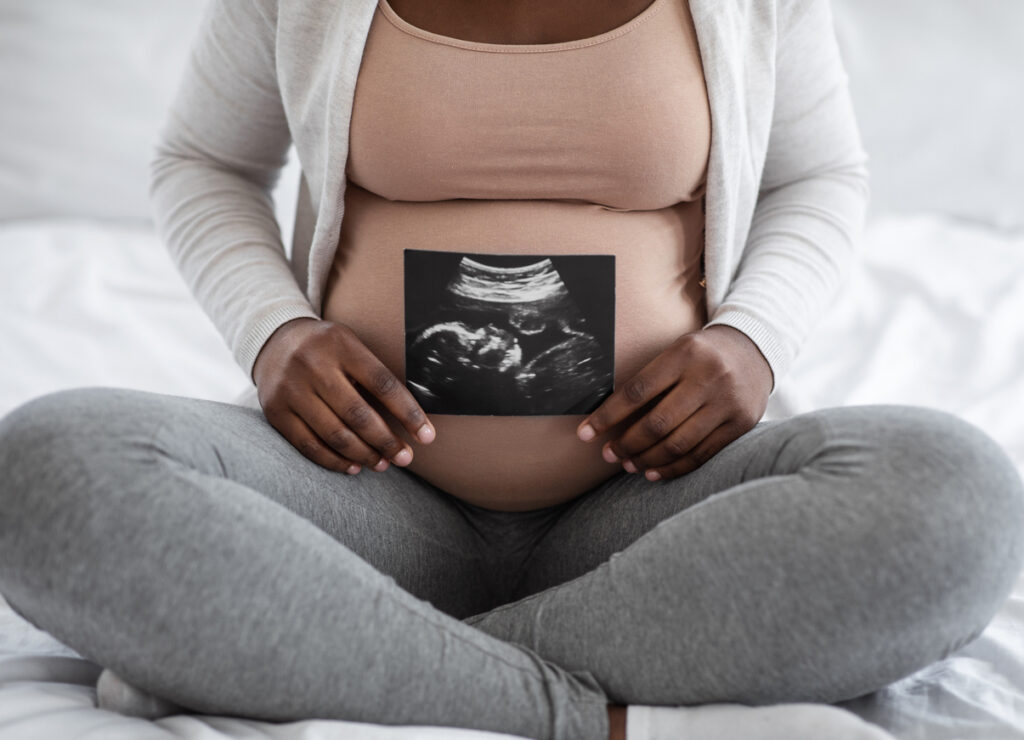The Black Maternal Health Crisis in North Carolina: A Call for Change
The Black Maternal Health Crisis in North Carolina: A Call for Change
Maternal health fairness is an issue, persisting in the United States, and North Carolina is no exception. While pregnancy should be a time of joy and anticipation, for many Black women, it becomes an unfair journey as they navigate an unfair system. In North Carolina, the issue of Black maternal health is critical and the gap in outcomes remains stark.
The Alarming Statistics
- High Mortality Rates: Black women in the U.S. face maternal mortality rates three to four times higher than non-Hispanic White women1. These differences are particularly pronounced in North Carolina.
- Late or No Prenatal Care: In recent report, Black women received late or no prenatal care at a rate of 39.1%, compared to 23.9% for White women1. Early and consistent prenatal care is crucial for healthy pregnancies.
- Uninsured Rates: Shockingly, 9% of Black women of childbearing age in North Carolina lack health insurance2. These statistics are from 2022 and at the end of 2023, North Carolina expanded Medicaid access which should positively affect these numbers.
- Geographic Differences: Rural areas in northeast and southeast North Carolina face low access to maternity care. Some communities live in maternity care deserts, where obstetric care is simply unavailable2.
Beyond the Numbers: A Crisis Rooted in Unfairness
This crisis isn’t simply a matter of birth outcomes. It’s about policies and practices that have been historically unfair to Black communities over generations. Examples of this unfairness includes:
- Limited access to quality healthcare: North Carolina has a large uninsured population, and Black communities are disproportionately affected. This lack of access to prenatal care, doulas, and midwives contributes to poorer health outcomes.
- Unconscious inclinations: Studies show that Black women often experience dismissive treatment, missed diagnoses, and inadequate pain management.
- Social determinants of health: Factors like poverty, food insecurity, and chronic stress all contribute to a woman’s health during pregnancy. Black communities are more likely to face these challenges, further jeopardizing maternal health.
The Voices of Experts
Recently, a panel of experts — all Black women — gathered in Charlotte to address the maternal health gap for Black people. Their insights shed light on the urgent need for change:
- Representation Matters: Better representation of Black women in healthcare is essential. When providers understand the unique life experiences of Black birthing people, they can offer more effective care.
- Confronting Unconscious Inclinations Healthcare providers must confront these unconscious preferences.
- Understanding the Crisis: Doug Robinson, a retired doctor, organized the forum to keep the conversation alive. The problem is not new, but sustained efforts are necessary to bridge the gap.
It would be remiss to exclude voices with lived experience. Here are some personal stories for Black mothers in North Carolina, shedding light on their experiences, challenges, and resilience:
- Cindy McMillan and Sistas Caring 4 Sistas:
- Cindy McMillan, the executive director of Sistas Caring 4 Sistas, a community-based doula service in Asheville, has been working tirelessly to improve health outcomes for women of color and their babies.
- Shocked by the high infant mortality rates among babies born to women of color in her community, McMillan founded this organization. She aims to empower pregnant people of color with evidence-based practices to reduce birth complications5.
- Black women and childbearing individuals being three to four times more likely to die from pregnancy-related complications than their White counterparts5.
- Bianca Davidson’s Struggle:
- Bianca Davidson, a young mother, faced challenges when her premature baby arrived. Being in foster care and lacking awareness about the risks associated with premature birth, she navigated a difficult journey to ensure her child’s well-being6.
- Ocir Black’s Book on Mothers’ Advice to Sons:
- Ocir Black, a teenager from North Carolina, wrote a book that celebrates the relationship between mothers and their sons. His work delves into the challenges young Black men face while growing up in America7.
- Insights from Middle-Class Black Mothers:
- A study involving 35 predominantly middle-class Black mothers in the continental United States revealed how anti-Black racism affects Black families. These mothers shared their experiences, highlighting the insidious impact of racism on their lives and the lives of their children8.
- April Parker’s Journey of Identity:
- April Parker’s family history is intertwined with her heritage. Growing up, she spent summers in Chadbourn, North Carolina, where she learned to embrace her mixed-race American Indian identity. Her story reflects resilience and self-discovery5.
These personal narratives underscore the urgent need for systemic change, increased awareness, and support for Black mothers and families in North Carolina. Let us continue to amplify their voices and work toward fair maternal health care for all.
 Building a Brighter Future for Black Mothers
Building a Brighter Future for Black Mothers
North Carolina has received over $4 million to improve maternal health4, particularly in underserved areas. Change is possible; however, systemic change requires collective action. Here are some ways you can get involved:
- Community Education: Raise awareness about differences and unfairness in regard to maternal health care. Advocate for more competent and fair care.
- Policy Reform: Advocate for policies that address healthcare unfairness, expand Medicaid, and increase access to prenatal services.
- Support Networks: Strengthen community support networks for pregnant Black women, providing emotional and practical assistance.
The Black maternal health crisis is not insurmountable. By amplifying voices, working towards fairness, and advocating for change, we can create a safer, fairer environment for all birthing people in North Carolina. Black mamas matter, and their health deserves to be a top priority.
References:
- Experts of color gather to tackle the maternal health gap for Black people
- Black Maternal Health – North Carolina Black Alliance
- Black and Pregnant in America: A National Health Care Crisis
- North Carolina Receives More Than $4 Million to Improve Maternal Health
- Black doulas in NC fight high maternal and infant mortality rate by building relationship, community
- The secret to Saving the Lives of Black Mothers and Babies
- North Carolina Teen Writes Book on Mothers’ Advice to Sons
- Intensive motherwork: racism and blackwomen’s mothering









